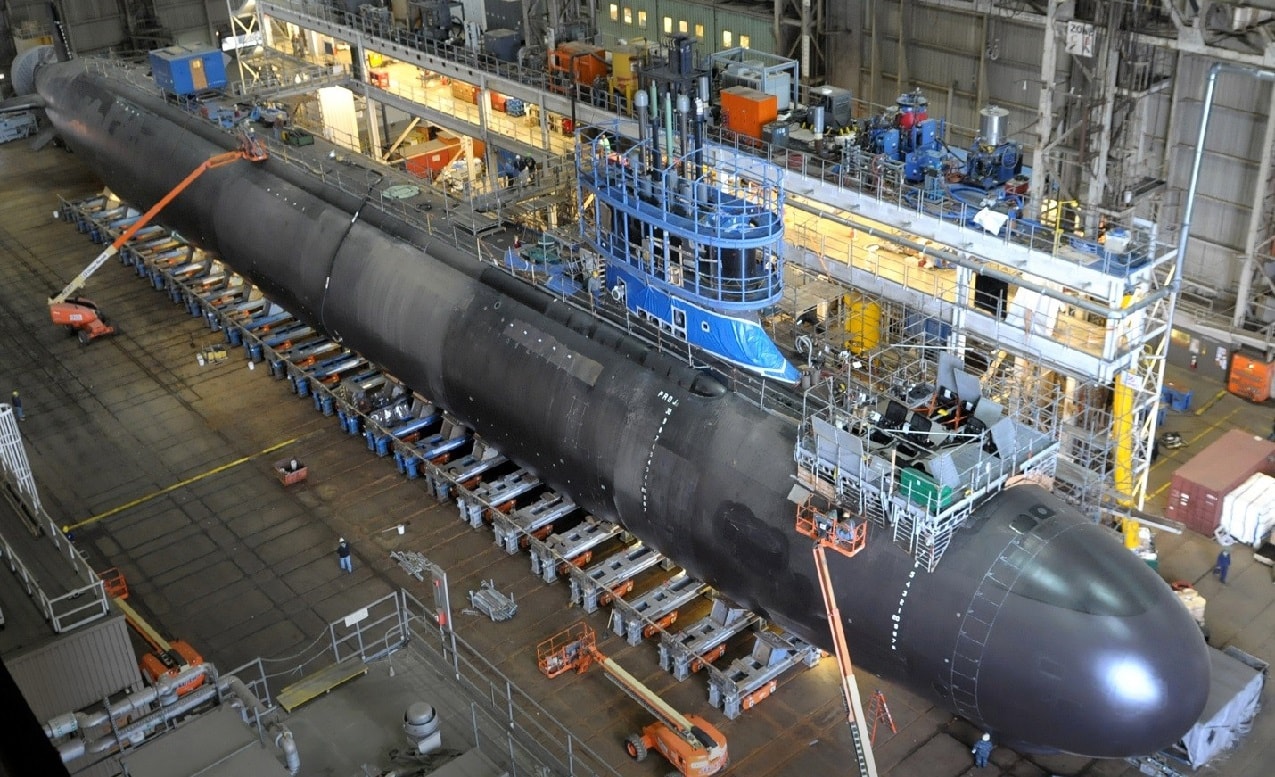Australia has long been a reliable US ally. The recently mooted submarine deal which links Australia to the US – as a part of the AUKUS (Australia, United Kingdom, United States) bloc – is a good arrangement for both sides. The deal looks to be the sale of five used American Virginia-class submarines. Their used status would keep the price down – important for Australia’s middle-sized economy – and Australia would also contribute to the improvement of the subs’ construction facilities in the US.
Australia Has Long Been a Reliable US Ally
Since the conclusion of World War II, America has pursued a forward posture in the Pacific. It maintains a string of bases around the region, supporting those with alliances with like-minded states. Previously, the US was far more retrenched, with only Guam and the Philippines as major US commitments west of Hawaii. The expansion of Soviet power in far east and the communist takeover of China in the 1940s changed all that. The US would stay in Japan, South Korea and elsewhere to help contain these powers. Australia was a part of that alliance network.
The collapse of the Soviet Union relieved some of the pressure. South Korea, for example, has pursued a more independent foreign policy in the years since the USSR’s demise. In the 1990s and 2000s, a regional re-ordering seemed possible: China looked like it might genuinely liberalize; predictions of North Korean collapse were common. But China’s rapid rise is restoring the competitive relationship in East Asia between the US and a powerful regional autocracy.
So, the US-Australian strategic relationship endures. While Australia will never be as central to the US position in Asia as Japan, the US-Australia alliance is arguably a tighter relationship because of its social and cultural affinities. Australia and the US are both part of the larger ‘Anglosphere,’ with a shared political and cultural heritage to smooth the edges of the relationship. Indeed, the US privileges anglophone countries in its so-called ‘five eyes’ intelligence-sharing arrangement.
This affinity has meant that Australia has dutifully fought with the United States in almost all American conflicts since World War II, even in the rather dubious ones like Vietnam and the war on terrorism. US allies Japan and South Korea have been far more reticent, and there is a free-riding critique to make of those alliance relationships which does not apply to Australia. Cultural commonalities also limit competitive tensions. In the 1980s and 1990s, there was enormous American anxiety about the economic rise of Japan. The hysteria was so bad it affected the geopolitical relationship. That sort of cultural backlash is highly unlikely inside Five Eyes.
Yes, the Submarines are about China
Australia is an island and so inevitably a naval power first. During the war on terror, its foreign policy focused heavily on the possible rise of Islamic fundamentalism in southeast Asia. But that never really materialized beyond a few high-profile incidents. Indonesia and Malaysia are more moderate than the intense Islamic oligarchies of the Persian Gulf. Instead, the real issue for Australian foreign policy has become, unsurprisingly, China’s rise, specifically its push into the South China Sea.
China’s capacious claims in that body of water – the ‘Nine Dash Line’ – are well-known by now. They do not affect Australia directly. Indeed, Indonesia helpfully blocks China from Australia. But the littoral states of the South China Sea – Vietnam, the Philippines, and Indonesia – are too weak to resist Chinese incursions, even if they stand together. The US has run ‘freedom of navigation operations’ in the South China Sea to push back on Chinese claims. But this area is a long way from the US mainland. Convincing Americans to draw redlines against China over empty water will be hard sell, and proximate US allies have been noticeably vague on aligning with the US on this. Japan, South Korea, and Taiwan – all closer to the area than Australia – have dithered. Australia by contrast has stepped up, openly rejecting Chinese claims and insisting on navigation rights in the area.
This is almost certainly the logic behind both AUKUS and the US submarine purchase. Chinese naval expansion is Australia’s greatest long-term threat. Indonesia obstructs the direct transit of Australian surface vessels to the South China Sea. But submarines get around this problem. US submarines also improve inter-operability – maintenance, logistics, force planning – between the two. This integration reasoning is similar to that of the placement of a small US ground contingent in northern Australia.
That Beijing is already upset about the deal, even though it is still not concluded, means that it is almost certainly the right move. East Asian states have been signaling China for two decades to negotiate over the South China Sea. It will not. AUKUS and military sales like this are the predictable result.
Dr. Robert E. Kelly (@Robert_E_Kelly; RoberEdwinKelly.com) is a professor in the Department of Political Science at Pusan National University and 19FortyFive Contributing Editor.

